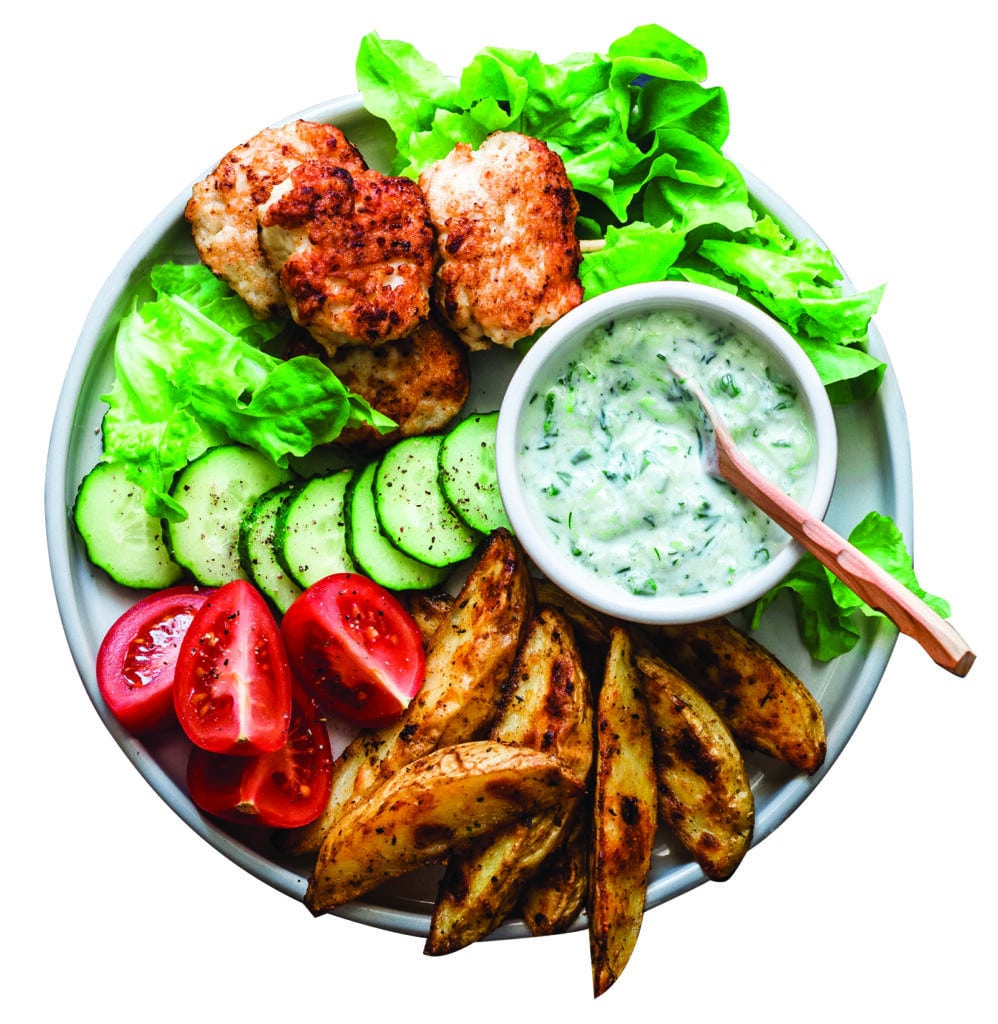
Healthier Eating
How to Pare Down Protein & Cut Back Carbs
Inspired by a belief that our diets can be redefined to integrate both healthier eatting and environmental responsibility , Menus of Change encourages a meaningful “flip” in the emphasis on animal proteins and highly processed carbohydrates to an emphasis on highly appealing alternatives.
Menus of Change, a collaboration of the Harvard T.H. Chan School of Public Health and the Culinary Institute of America (CIA), authors a creative approach to enjoying delicious, nutritional and sustainable foods: “The Protein Flip” and its companion, the
“Carbohydrate Flip.”
The Protein Flip, introduced in 2016, laid the groundwork for the Menus of Change health- oriented methodology, stating, “Higher intake of red meat, irrespective of its total fat content, increases risk of heart disease, stroke and diabetes when compared to poultry, fish, eggs, nuts, or legumes.”
The Menus of Change solution was to challenge chefs in every setting to place meat, poultry and seafood in a supporting role or as a side and make vegetables and plant proteins the stars – for example, burger blends composed of primarily mushrooms, other vegetables, grains or legumes; surf and turf reimagined as seafood with bountiful vegetables and only a bite or two of meat; use of tapas, mezze and other plant-forward small plate replacements for entrees. The public response was immensely gratifying, spurring further innovation and the mainstreaming of vegan options, such as lentil, barley and black bean burgers or wild rice polenta burgers made with mushrooms, carrots and leeks.
Building on their successful work with proteins, the collaborative is now developing a complementary program centered on advancing carbohydrate quality on the American plate. “From fluffy pancakes to soft hamburger buns, refined, fast-metabolizing carbohydrates are still found in many a diet and are contributing to the rise in diet-linked chronic conditions such as diabetes and heart disease,” according to a recent Menus of Change summit panel discussion headed by Sarah Schutzberger, RD, CSO (certified in oncology nutrition). “In large part because of our food choices, scientists project that 75 percent of chronic diseases are attributable to diet and lifestyle.”
A substantial emphasis on whole, minimally processed carbohydrates can help change the trajectory, beginning with these flips described by the panel:
- Take on the Three Pleasures challenge: Create a delicious dessert using dark chocolate, nuts, and fresh-cut or dried fruit. “Instead of forcing a choice between a whole slice of cheesecake with a single strawberry as garnish or a plain bowl of berries, enjoy a dessert made from a healthy market basket that includes dark chocolate, fruit, whole grains, nuts and yogurt,” advised Greg Drescher, Culinary Institute of America.
- Look to world food cultures for inspiration:
- Mediterranean region: “This type of cooking features a healthy fat versus a low fat approach to diet, with olive oil as the foundation of flavor,” said Drescher. Try tabouli, made of cracked bulgur wheat, chopped parsley and olive oil, or a salad made with hydrated, whole-grain barley rusks, topped with chopped tomatoes and fresh feta cheese and tossed with olive oil. Also important: improve the health profile of pasta by using a whole-grain type and cooking al dente to make it a source of slower-releasing carbohydrates.
- France: The niçoise salad suggests ways to include potatoes in limited amounts by pairing with green beans and other vegetables, hard-boiled egg, and a light vinaigrette for a slow-metabolizing lunch.
- Asia and India: Try a salad featuring soba noodles made from buckwheat flour; a Buddha bowl with foundational ingredients that include legumes, fresh vegetables and plant proteins, paired with small amounts of salmon or roasted tofu; and whole-grain flatbreads.
The post Healthier Eating appeared first on Specialdocs Consultants.
